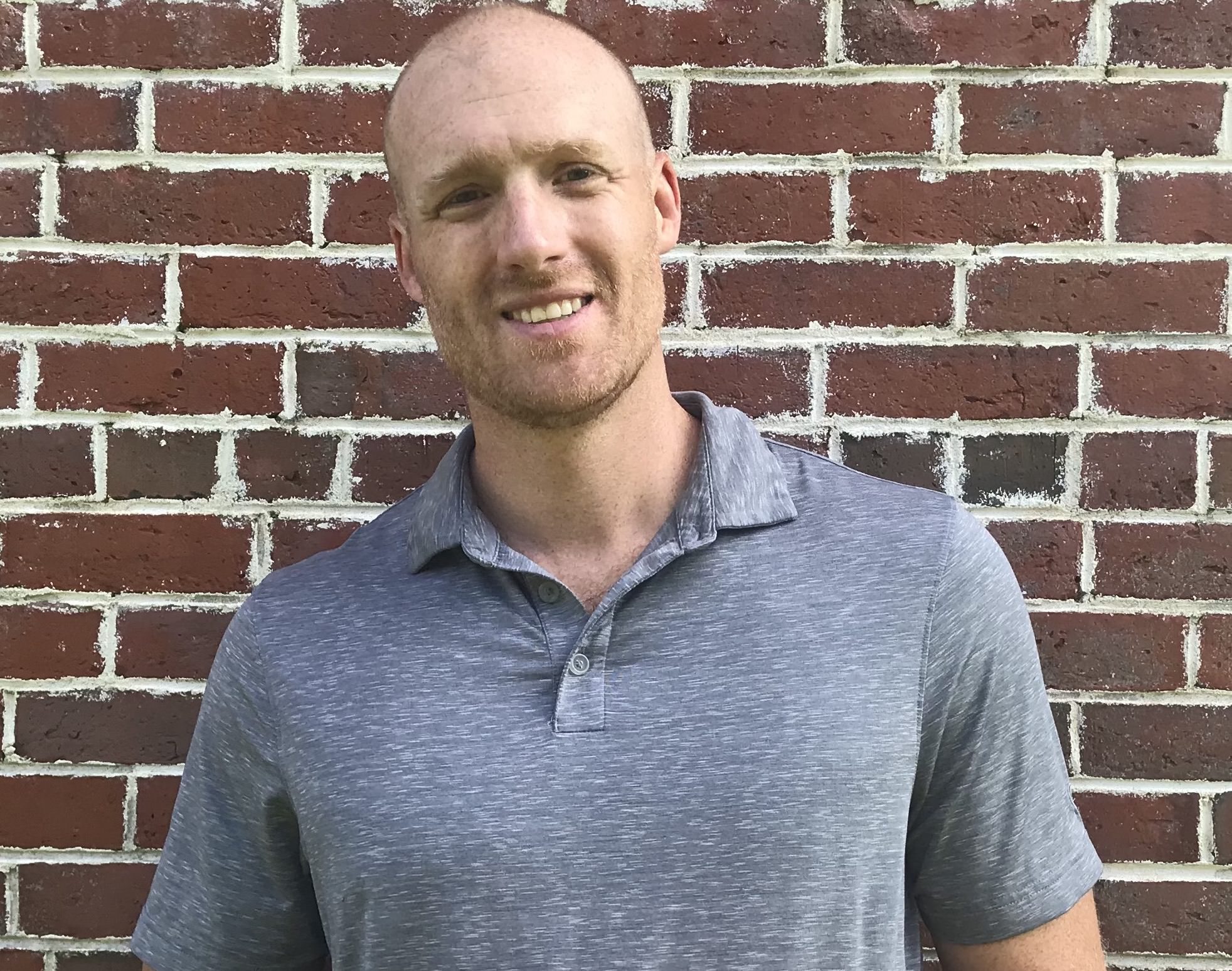
Bennett Comerford, a second year Graduate Student Associate with the Mittal Institute, is a doctoral candidate in the Committee on the Study of Religion at Harvard University. His work focuses on the intersections of religion, literature, race and coloniality in nineteenth-century Bengal. He is a past recipient of language and research fellowships in Bangladesh and India. The Mittal Institute sat down to learn more about Bennett and his research.

Mittal Institute: Bennett, welcome back to your second year as a GSA. Can you elaborate on your research interests? What is your dissertation topic?
Bennett Comerford: Thank you so much! My research interests revolve around South Asian religions and comparative religious studies. I came to Harvard after completing undergraduate and master’s programs at Boston College, where I studied philosophy, Italian and comparative theology. While at Boston College I availed myself of the opportunity to take courses at Harvard Divinity School through the Boston Theological Institute, and this planted the seed that Harvard would be a wonderful place to pursue doctoral work. Two of my longstanding mentors at Boston College and Harvard, Professors Catherine Cornille and Francis X. Clooney (my current advisor), both conduct research and teach on Hinduism. The courses I took with them as an undergraduate and master’s student helped foster my interest in India and eventually led to my more particular regional and historical focus on nineteenth-century Bengal.
My dissertation is concerned with the intersections between religion and literature and draws upon the satirical dramas of Bengali poet and playwright, Michael Madhusudan Datta (1824-1873), to consider how the concepts of religion and race are utilized in his writings to portray the colonial realities of nineteenth-century Bengal. Datta is widely regarded as a foremost representative of Bengali literary modernity. Many scholars consider him to be the first modern Bengali literary figure, while others emphasize the long list of historical “firsts” he accomplished in his lifetime (he was the first to compose Bangla poetry in blank-verse the first to write sonnets in Bangla, purportedly the first Bengali to translate his own work into English and the first to adapt Homer’s Iliad to a South Asian vernacular). In the span of a relatively brief writing career Datta achieved functional fluency in several European and South Asian languages and developed a deep familiarity with the literary traditions linked to those languages. Among his literary accomplishments, Datta is also widely considered to be the first modern Bengali dramatist. In my dissertation, I show how Datta both articulates and exemplifies a particularly modern and theologically significant conceptualization of race and religion within the context of colonial Bengal.
Mittal Institute: How did you first become interested in South Asian – specifically Bengali – culture and history?
Bennett Comerford: Prior to pursing graduate work I had spent some time traveling in north India and Nepal and knew it was a part of the world about which I wanted to learn more. I originally gravitated toward the study of Bengali culture and history because I saw it as an opportunity to learn a single language that would enable me to better navigate two distinct religious cultures in two different countries: the predominantly Islamic context of present-day Bangladesh and the predominantly Hindu context of West Bengal, India. Although much of my research is rooted in the reading of texts, it was important to me to spend time in South Asia as I discerned doctoral work. Over the course of several summers in Dhaka and an academic year in Kolkata, my initial aspirations to conduct research squarely within religious and theological studies began to shift as I found myself enthralled by the shared literary culture that was widely celebrated as the common heritage of both Bengali Hindus and Muslims (and Christians, Buddhists, etc.).
Mittal Institute: This summer you are working as a Junior Fellow with the Franklin Book Program Collection, housed at the Library of Congress. Can you tell us more about your work there?
Bennett Comerford: I am very fortunate to be working at the Library of Congress as a Junior Fellow in the Asian Division this summer. Along with an outstanding colleague and doctoral student from the University of Texas at Austin, Daniel Ng, I have been tasked with identifying Bengali materials from the Franklin Book Program collection, a Cold War-era initiative which sought to translate American books into over a dozen vernacular languages, including Bangla. This summer I have had the chance to spend time sorting through, identifying and creating descriptive data for Bangla-language books from the Franklin collection. I have also been contributing to the creation of a research guide and I am working on a blog about Islamic titles from the collection and what they may reveal about the Franklin Book Program’s strategies for cultural diplomacy.
In addition to the opportunity to work directly with Bengali materials this summer it has been exciting to learn more about the Library of Congress and to interact with the incredible staff and fellowship program coordinators. My work has been supervised and encouraged along by two incredible mentors and scholars of South Asia, Dr. Charlotte Giles and Dr. Jonathan Loar, with whom I have had the chance to work closely and from whom I have learned a great deal this summer.
Mittal Institute: How has your alignment with the Mittal Institute, or your role as a GSA, benefited your research?
Bennett Comerford: I have been most grateful for the opportunity to affiliate with the Mittal Institute as I continue my research and work on my dissertation. Affiliating with the Mittal Institute has opened up opportunities to connect with other students and scholars of South Asia from a wide range of fields, many of whom I might not otherwise have had the chance to meet. I value such an opportunity to think across disciplinary lines and I find that doing so holds unexpected rewards and provides the chance to continue learning and thinking about South Asia in exciting and compelling new ways.
Mittal Institute: What are your next goals for your research, and what are your career aspirations?
Bennett Comerford: With my research interests rooted in the study of religion, I also hope to contribute to the broader understanding and appreciation of the rich literary and cultural history of Bengal. I am interested in participating in and helping to facilitate conversations in the academy and the classroom that highlight the countless cultural achievements produced in the Bangla language, which many people do not realize is often estimated to be the 6th or 7th most spoken language in the world today.
As I continue my research and prepare for future job prospects I hope I will have the chance to return to Bengal in order to see the plays I have been translating and studying performed. In particular, I am eager to return to Datta’s town of origin, Sagardari in the Jessore district of Bangladesh, where a festival is held in his honor every year during the week of his birth anniversary in January. Michael Madhusudan Datta is an extraordinary figure, and a writer I think deserves considerably more scholarly attention than he has received. Though he lived and wrote over 150 years ago, Datta’s engagements with religion, race and coloniality are surprisingly relevant to contemporary conversations about such topics and issues. Any contribution I can make toward articulating such links, and to building bridges between the past and the present and between Bengal and North America would be a cherished accomplishment.
